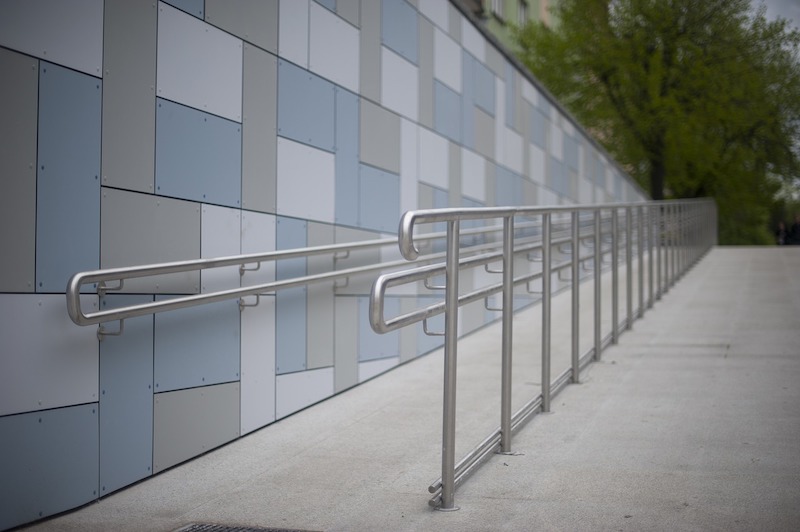All historic properties providing access to the public are subject to the Americans With Disabilities Act (ADA), but there are some exceptions.
Historic properties are defined as being listed on, or being eligible to be listed on, the National Register of Historic Places, or designated as historic properties under state or local law. Owners of such buildings must conserve the historic nature of the building and provide accessibility to those who need it.
The National Parks Service’s Preservation Brief 32 introduces and provides guidance on how to integrate accessibility within a historic property. The brief outlines key steps including the completion of an accessibility assessment to identify items that do not comply with the ADA Standards and an evaluation of options to correct non-compliant items while being sensitive to the building’s historic character.
If it is not technically infeasible to meet current ADA Standards without threatening or destroying the historic significance of a building, an owner or representative must consult with the State Historic Preservation Officer. Exceptions may be made for accessible routes, entrances, and toilet facilities under certain circumstances.
Related Stories
| Mar 22, 2012
Bill would reintroduce “opt-out” provision in lead paint law
The Lead Exposure Reduction Amendments Act of 2012 (S2148) would restore the "Opt-Out" provision removed from the Environmental Protection Agency's Lead Renovate, Repair and Painting (LRRP) rule in April 2010.
| Mar 15, 2012
New Florida building code establishes flood and storm surge provisions
The new 2010 code establishes minimum design and construction requirements to protect buildings from wind, rain, floods, and storm surges.
| Mar 15, 2012
Illinois city rejects international code due to home sprinkler requirement
Macomb, Illinois aldermen voted to recommend that the city not adopt 2012 international building and residential code standards requiring the installation of overhead sprinkler systems in newly constructed one-family and two-family homes.
| Mar 15, 2012
Tenant advocates propose licensing landlords in New York City
With thousands of New York City rental units posing potential dangers to tenants, city advocates are proposing measures to make landlords improve building safety.
| Mar 15, 2012
Construction industry a big winner in federal small disadvantaged business procurement
Last year, only 5% of federal contract dollars went to small disadvantaged businesses. Construction and facilities support firms were the biggest beneficiaries.
| Mar 15, 2012
ANSI approves new fall protection standards
The American National Standards Institute (ANSI) has approved two American Society of Safety Engineers' (ASSE) standards addressing fall protection.
| Mar 8, 2012
Engineering innovation provides new option for meeting seismic codes in skyscrapers
Two University of Toronto engineers have developed “viscoelastic-energy-dissipating dampers” to replace many of the heavy concrete beams used in tall structures.
| Mar 8, 2012
CSI webinar on building code compliance March 22
A March 22 webinar will provide an overview of a 28-step process during the design of a building to ensure compliance with building codes.















